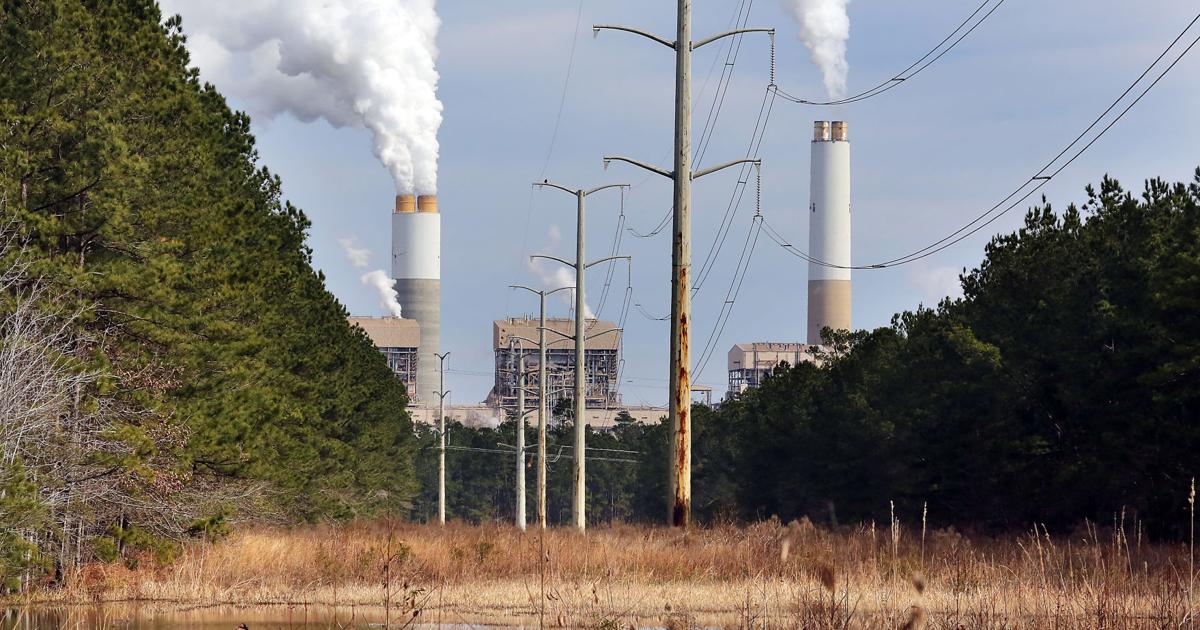Copyright Charleston Post and Courier

BERKELEY COUNTY — As the federal shutdown drags on, a new study raises concerns about whether coal power plants emit more microscopic particles that have been linked to increased risk for medical complications and death while federal inspectors are furloughed. The study, published in September and led by researchers at Pennsylvania State University, found that the emission of microscopic particles produced by coal-fired power plants — known as particulate matter or PM — was significantly higher during the last prolonged government shutdown that began in December 2018 and ended over a month later in January 2019. Coal power plants, like the Cross Generating Station in rural Berkeley County, emit several pollutants into the air, including gases like sulfur dioxide and nitrogen dioxide, as well as fine particulate matter that contribute to smog and myriad health issues, including respiratory problems, lung cancer, and heart disease. The study found that during the 2018-2019 shutdown, the emission of these fine particles increased 15-20 percent across the 204 plants included in the analysis. Dr. Ruohao Zhang, who helped lead the research, said the team analyzed NASA satellite data to observe the PM pollution in the atmosphere during the shutdown compared to the same time period for the previous five years. “For the particulate matter, they don't have data directly coming from power plants,” Zhang said. “So what we did is we used a satellite image to measure the transparency level of the atmosphere closely around these power plants, and to see whether there's a temporal change.” He added that PM effectively changes the transparency of the atmosphere. Though there was an increase in the particulate matter, the study found no meaningful change in the levels of sulfur dioxide or nitrogen dioxide gases emitted into the atmosphere by coal-fired plants. Zhang noted that plants have continuous monitoring systems for these gases, whereas data on PM emissions is not tracked by plants. Zhang and his colleagues looked at other factors like weather to see if they had an impact on the emissions. However, the weather conditions they analyzed — wind, humidity, and temperature — were in the same ranges during the shutdown as they were the previous five years. “By looking at this weather, looking at the other events, we didn't see anything special except the government shutdown,” he said. “So that is why we we concluded that the most possible reason of that temporal increase is because of the government shutdown.” Zhang emphasized that the results are a broad analysis covering all the examined plants and are not meant to be interpreted at the individual plant level. The study publishing a month before the current government shutdown began is mere coincidence, he said. He explained that the it took about two years to complete and a couple more to be submitted and go through the review process prior to publishing. He noted that for the current shutdown, another data analysis would be needed to determine if a similar trend occurred again, though he said the rollback of environmental regulations by the federal government could impact the results. “But more or less, we still believe it could happen, but we’re not sure. So, you’ll need to revisit the data again to see if it happens,” Zhang said. Compliance at Cross While the individual data for the Cross Generating Station in Berkeley County was not available from the study, the former Department of Health and Environmental Control issued a notice to Santee Cooper after the Cross Generating Station allegedly exceeded PM emission limits within one of its boilers during a compliance test in October 2019. The Post and Courier submitted an open records request to receive the final order on the alleged violation. The instance was one of only three compliance issues related to air quality found at the Cross plant in the last 10 years, according to officials from DHEC’s successor, the S.C. Department of Environmental Services. SCDES spokesperson Laura Renwick said the agency enforces many federal air regulations, though some — like the Toxic Release Inventory, Greenhouse Gas Reporting Program, and Part 75 - Continuous Emission Monitoring — are handled by federal inspectors. As such, she said the government shutdown has not impacted compliance inspections for the regulations handled by state officials. Mollie Gore, a spokesperson for Santee Cooper, said the company “takes seriously our responsibility to fully comply with all environmental regulations” related to running their power plants. She noted that Santee Cooper has had only two air emissions violations at Cross since 2018. Both involved particulate matter, and one was associated with testing, she said. Paul Black, an organizer with the Sierra Club, said the operation of coal power plants, including the one in Cross, continues to endanger community health. He also said it’s just expensive, noting that coal plants cost hundreds of millions to maintain with fuel and updates to comply with regulations. “It's hitting us economically. It’s hitting our community health. It’s hitting our climate health,” Black said. “It's hitting us in so many ways, and we're paying these bills and getting the negative cons.”



